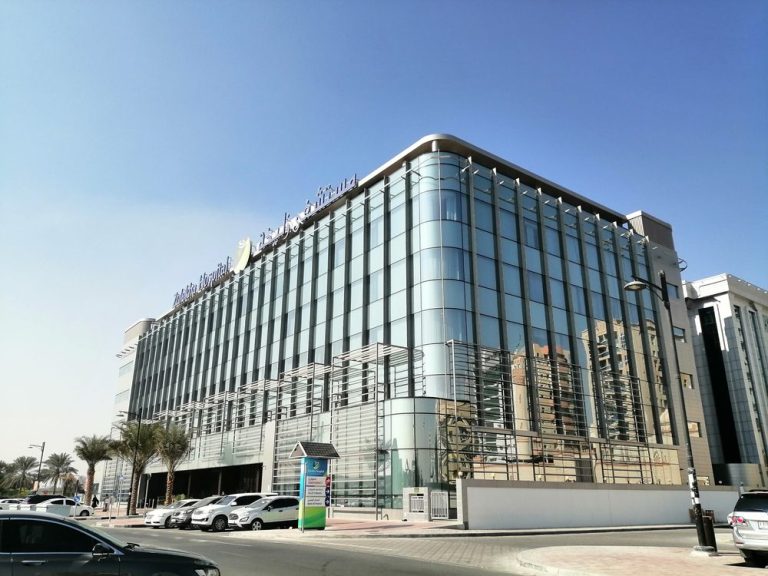The UAE Metaverse Healthcare Projects Pushing Medical Frontiers

As part of Dubai’s ambition to become a global center for metaverse business and technology, the emirate recently inaugurated its first hospital in the metaverse built by the UAE-based healthcare provider Medcare.
See more: Dubai Ramps Up Efforts to Become Global Metaverse Capital
The Metaverse healthcare facility mirrors Dubai’s real-world Medcare Women & Children Hospital and will be used in their medical tourism initiatives, giving potential patients an immersive experience of the hospital prior to visiting in person.
Announcing the launch, Dr. Shanila Laiju, CEO Medcare Hospitals and Medical Centers, said: “Our ultimate aim is to deliver actual healthcare services by incorporating the delivery of real-time consultations through our team of over 400 medical experts.”
She added that they expect traditional telemedicine services to be replaced by a need for Metaverse interactions in the long run, enabling “our patients to receive a more tangible and collaborative service.”
Earlier this year, another UAE healthcare company, Thumbay Group, announced its own intentions to build a virtual hospital where doctors and patients can meet for remote consultations. Thumbay Group is also working with UAE-based Gulf Medical University to incorporate Virtual Reality (VR) into medical training.
While metaverse skeptics might argue that such initiatives are little more than telehealth with 3D glasses, another project unveiled at the Gitex 2022 conference in the Dubai World Trade Center earlier this month is proving that remote medical treatment can go beyond consultations to treatment.
Related: EU HealthTech Firms Use Partnerships, Hybrid Approach to Complement Existing Delivery Model
Currently in the clinical trial stage, a digital new eye test is being developed by the Indian HealthTech ShopDoc.
While there have been other experiments with digital eye care, previous attempts assess the change in a patient’s visual acuity over time by asking the customer to distinguish several letters and shapes in the range of their current prescription.
These new tests, however, use technology developed by the U.S. digital optometry specialist CLEAR to test a more comprehensive range of prescription factors including visual acuity, contrast, pupil size, accommodation, binocular balancing and more, which the company states are able to deliver clinically verified 20/20 prescriptions.
With plans to first roll out remote eye tests in India and the UAE, the technology will be available to users of the ShopDoc Metaverse platform. ShopDoc has already entered into agreements with over 100 eye clinics in the UAE as part of efforts to promote its metaverse digital eye test project.
Learn more: PYMNTS Provider Rankings: Telemedicine Apps
Transforming Modern Surgery With VR/AR
Aside from the enhanced remote appointments made possible by VR, the technology has been used by surgeons to simulate operations. In fact, in life-or-death situations, getting in some virtual practice before can make all the difference.
Earlier this year, surgeons separated two conjoined twins in Brazil after months of trialing the techniques using VR projections of the twins, based on Computed tomography (CT) and Magnetic resonance imaging (MRI) scans.
With some members of the team based in London and others in Rio de Janeiro, for the first time, surgeons in separate countries wore headsets and operated in the same virtual theater in real-time.
To bring this kind of cutting-edge technology to the UAE, Dubai’s Abdul Latif Jameel Health has partnered with Japanese medical VR specialist Holoeyes in a project that will deploy detailed 3D VR models for training, education and analysis.
In the related field of Augmented Reality (AR) assisted surgery, medical professionals in Abu Dhabi have been pioneering new surgical techniques using Microsoft’s HoloLens AR headset.
The technology, which Dr. Rashed Al Shaeel of Burjeel Medical City compared to “a surgical sat-nav,” provides real-time patient data to surgeons and shows them where to make incisions.
At the same time, colleagues can remotely monitor the operation through the headset’s cameras, giving specialists anywhere in the world a live view of the patient.
For all PYMNTS EMEA coverage, subscribe to the daily EMEA Newsletter.